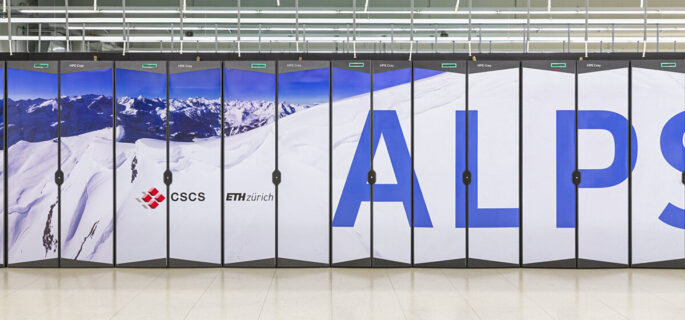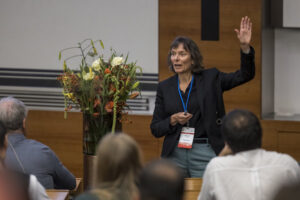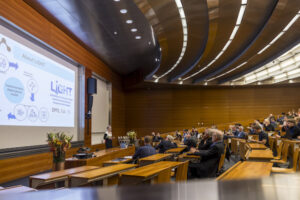Alps Scientific Symposium Highlights AI’s Role in Tackling Science’s Biggest Challenges

ETH Zürich recently celebrated the launch of the AI-optimized “Alps” supercomputer with a scientific symposium focused on the future possibilities of scientific AI thanks to increased compute power and a flexible architecture designed to tackle some of the largest scientific endeavors.
The new research infrastructure, which debuted on September 14, is housed at the Swiss National Supercomputing Centre (CSCS) and is based on a Cray Supercomputer EX from Hewlett-Packard Enterprise. The system features 10,752 Nvidia Grace Hopper superchips and is expected to reach performance of half an exaflop when fully expanded.
The Alps symposium examined the latest developments in scientific AI and big data which are aiming to meet the often intensive data and compute needs of various scientific fields. Several engaging presentations gave attendees a preview of what the Alps infrastructure will be tackling, including the search for new materials, the mapping of the Universe, and medical care supported by AI, according to a CSCS news release.

Professor Nicola Spaldin explores new possibilities for AI in materials research. Image Courtesy CSCS.
Professor Nicola Spaldin of ETH Zürich posited that different eras of civilization can be measured by the progress made in material science and engineering, suggesting we are now reaching the end of the Silicon Age. “New materials are essential for advancing society in a sustainable way, limiting energy consumption,” she said, highlighting multiferroic materials as a potential new option for data storage. With its complementary blend of supercomputing and machine learning capabilities, systems like Alps will facilitate complex materials research investigations that could advance civilization into a new age.
Alps will also enable the mapping of our universe, according to another symposium presentation from Jean-Paul Kneib, professor at EPFL and the Swiss Science Delegate at the Square Kilometer Array Observatory (SKAO) Council. Kneib discussed a new scientific project supported by Alps—SKAO—which is a massive radio telescope array using radio interferometry techniques with hundreds of antennas to map the universe. The Alps infrastructure will enable researchers to manage the massive astronomical datasets to be collected with the SKAO array.

Professor Mary Anne Hartley presents her AI-powered healthcare research at the Alps symposium. Image courtesy CSCS.
Other symposium talks explored the possibilities of AI for science in the healthcare field. ETH Zürich Professor Tanja Stadler, the former head of the Swiss scientific advisory board on COVID-19, explained how her team enabled real-time tracking of the spread of COVID-19 virus variants by developing rapid querying features from genetic sequencing data using AI. Another presentation from Mary-Anne Hartley, a visiting professor at EPFL and an assistant professor at the Yale Institute for Global Health, explored the use of generative AI for decision making in healthcare. Using Meta’s Llama model, Hartley’s team performed continued pre-training using data from medical research and clinical practice to create a suite of open source large language models named Meditron. Co-designed with clinicians, the Meditron models will allow doctors and patients to ask questions and receive assistance with diagnoses and care, Hartley said, which could improve clinical practices in areas with limited resources.
Alps was launched by ETH Zürich and EPFL to position Switzerland as the world’s leading hub for the development and implementation of transparent and trustworthy AI solutions, according to a statement. Alps is one of the first supercomputers with access to Nvidia’s GH200 chips and researchers have already benchmarked a partition of Alps with the CUDA 12.3 software stack on quad GH200 nodes. For scientific applications requiring large memory footprints, Alps’ unified memory pool will give researchers new options for tackling large scale problems.
CSCS has made the Alps scientific symposium presentations available to replay on its YouTube channel, found here.











